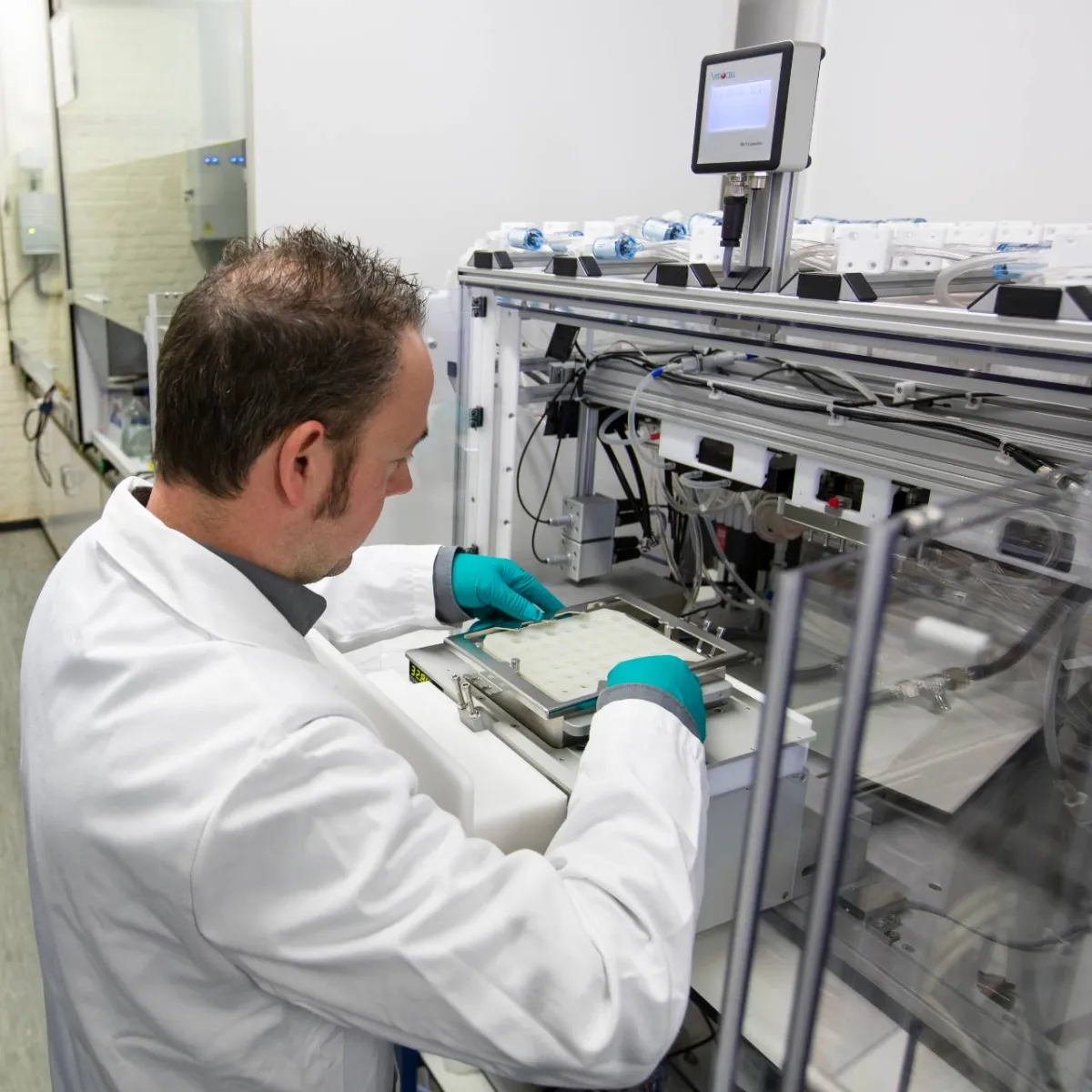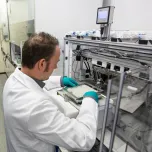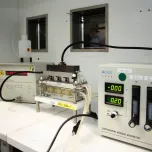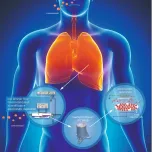
AIR-LIQUID INTERFACE (ALI) technology: bridge the gap between pre-clinical and clinical trials
Testing, modeling & simulation




Information
Air-liquid interface (ALI) exposure is an alternative test method for inhalation of airborne substances and to study health or therapeutic effects of new pharmaceuticals. The defining feature of ALI culture is that the basal surface of the cells is in contact with liquid culture medium, whereas the apical surface is exposed to air. This configuration mimics the conditions found in the human airway.
VITO has an extensive ALI platform with four different modules: three commercial systems for bronchial studies and one in-house developed system (co-development with PLUS Salzburg) for lower airway/alveolar studies.
Together with a generation and characterization platform and a set of biological endpoints, these ALI exposure systems can be used to screen the health effects of airborne particles (nano/micro), volatiles and gases but also pharmaceutical substances. Biological endpoints can be cell viability, cytotoxicity, oxidative stress, inflammation, membrane integrity and mucociliary clearance.
Also the effectiveness of inhalable pharmaceutical components or vaccines can be tested with the ALI-exposure testing method. Think of fast screening, the determination of absorption or permeation of inhalable compounds or even the testing of efficacy.
Poster / URL
Presenting author:
Air-liquid interface (ALI) exposure is an alternative test method for inhalation of airborne substances and to study health or therapeutic effects of new pharmaceuticals.
